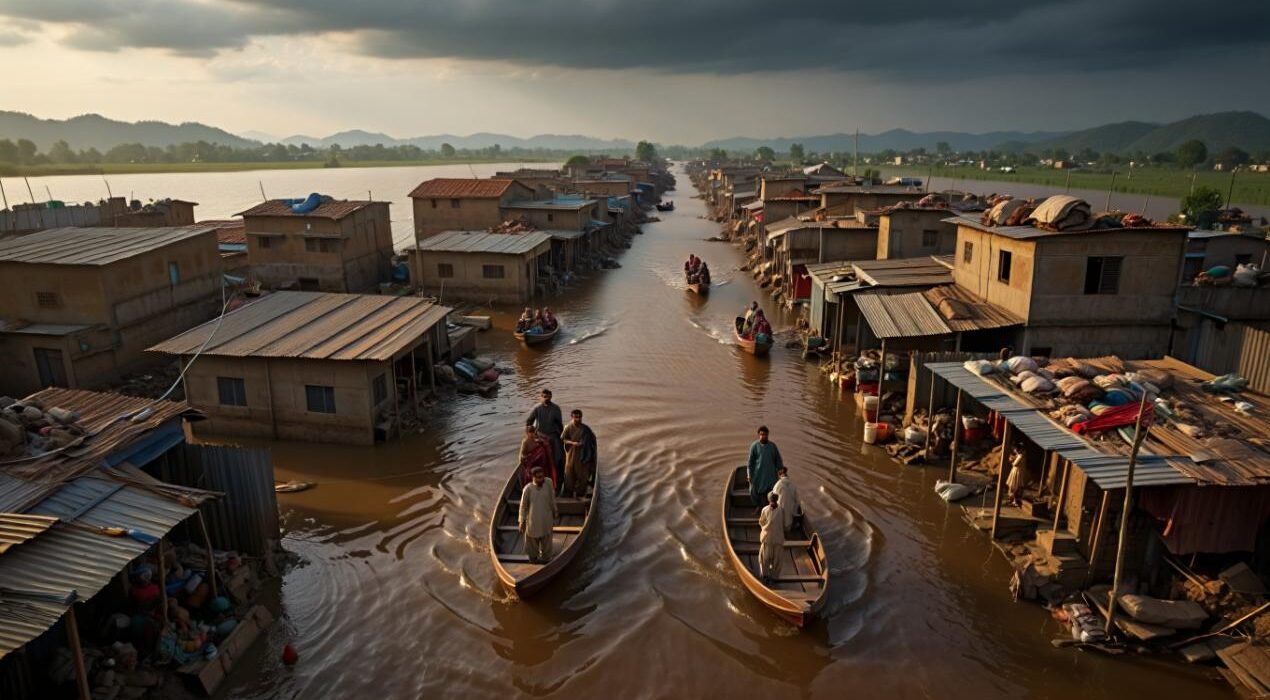Pakistan has been devastated by record monsoon rains this year, causing unprecedented floods and landslides that killed over 1,000 people and injured nearly 1,100, according to the National Disaster Management Authority (NDMA). More than five million people were affected, with 4,100 villages destroyed. Prime Minister Shehbaz Sharif, addressing a Special Climate Event convened by UN Secretary-General António Guterres, reminded the global community that Pakistan is still reeling from the catastrophic 2022 floods, which killed 1,700 people, displaced millions, and inflicted damages exceeding $30 billion. Despite Pakistan’s negligible contribution to global greenhouse gas emissions, he stressed that the country bears disproportionate climate impacts. The prime minister criticized the reliance on loans over grants in global climate finance, calling it unsustainable for vulnerable nations. He urged world leaders to honor their pledges, reminding them that only $500 million of the $10 billion pledged at the Geneva conference materialized as grants, while the rest were loans.
Highlighting Pakistan’s climate resilience efforts, PM Shehbaz announced ambitious renewable energy and adaptation goals. He said Pakistan had already achieved its unconditional target of a 15% emissions reduction under the 2021 Nationally Determined Contributions (NDCs). Renewables now provide 32% of the country’s power mix, with solar energy expanding sevenfold since 2021. By 2035, Pakistan aims to increase renewables and hydropower to 62% of the energy mix, expand nuclear capacity by 1,200 MW by 2030, transition 30% of transport to clean mobility, and install 3,000 EV charging stations. Additional initiatives include scaling up climate-smart agriculture, restoring mangroves (already 23,000 hectares), improving water security, and planting 1 billion trees. However, he cautioned that progress is severely hampered by inadequate international climate finance. UN Secretary-General António Guterres stressed that COP30 in Brazil must deliver a credible global response, mobilizing $1.3 trillion annually in climate finance by 2035 to support vulnerable nations like Pakistan.
Pakistan Reels from Deadly Monsoon Floods PM Shehbaz Urges Climate Justice, Global Action




